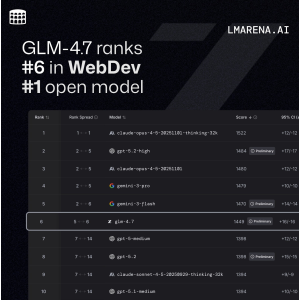
- Key findings Output and new orders fall sharply Price pressures ease but remain marked Year-ahead outlook falls to weakest in survey’s history
Stanbic Bank, S&P Global.Kenyan companies posted their lowest confidence levels on record in April,latest PMI survey data showed, as inflation and political unrest led to a sharp fall in customer demand and clouded the business outlook. Activity levels and input purchases also fell sharply, but employment numbers continued to rise.On a positive note, input cost pressures showed further signs of having peaked, dropping to their lowest recorded in 2023 so far, though remaining steep.
The headline figure derived from the survey is the Purchasing Managers’ IndexTM (PMI).Readings above 50.0 signal an improvement in business conditions on the previous month, while readings below 50.0 show a deterioration. The headline PMI registered below the 50.0 mark for the third month in a row in April.Dropping to 47.2 from 49.2 in March, the index also signaled a solid and faster decline in the health of the private sector economy at the start of the second quarter.
The cost-of-living crisis continued to hinder business performance, according to survey panellists,while an associated bout of political unrest led to a marked drop in client demand. New business inflows fell sharply and at a quicker pace than in March, despite a sustained upturn in export sales. Similarly, business activity declined for the third month in succession, and the rate of contraction was much sharper than in the previous survey period. Sector data indicated that the downturn was led by manufacturing and services, contrasting with expansions in the agriculture, construction and wholesale & retail categories.
Commenting on the Survey Mulalo Madula, Economist at Standard Bank said “In April, Kenya’s private sector output broadly deteriorated across several sectors covered by the PMI survey as the country experienced another contraction that began in February and continued through to April.
Despite continued growth in export sales, deteriorating domestic market conditions due in large part to higher costs and political protests dampened business activity and domestic demand as cost pressures continued to rise. A further increase in the amount of outstanding work in April led to a slightly positive employment trend, but in the absence of sales growth, employment is unlikely to be sustained.
“The outlook for output for the upcoming 12 months significantly decreased, reaching the lowest level since the survey’s inception. This was largely due to worries about the effects of high inflation as power tariffs were increased by around 19% in April. But then again, overall year-on-year inflation is likely to slow, having fallen to 7.9% in April from 9.2% in March, as statistical base effects continue to unwind, although underlying costs for firms are likely to remain elevated.”
Concerns over the impact of high inflation led to a marked drop in firms’ output expectations for the next 12 months, which declined to their lowest level since the survey began in January 2014. While sentiment remained positive, only 8% of respondents predicted activity to rise over the forthcoming year. Purchasing levels declined solidly in April, following a slight increase in March. Despite this, a sharp cut in activity allowed firms to store higher volumes of inputs, with some respondents citing concerns that supplies could run short due to limited cash flow.
In contrast to purchasing, Kenyan companies added to their workforces in April. Employment numbers rose at the quickest pace in 2023 so far, albeit only slightly. The upturn came amid a further increase in outstanding work, the third in the past four months.On the price front, there were signs that cost pressures were moderating at the start of the second quarter. Input prices rose at the slowest rate in four months, helped by softening demand and reports of an improvement in the availability of local goods, which also supported a slight reduction in average lead times.
That said, the pace of cost inflation remained steep overall, as firms again highlighted rising import prices due to a depreciation in the Kenyan shilling against the US dollar. Rising costs continued to be passed on to customers in April, indicated by another steep increase in output charges. Like input prices, the rate of inflation slowed from March but remained faster than the long-run trend.
Stanbic Bank Kenya PMITM is compiled by S&P Global from responses to questionnaires sent to purchasing managers in a panel of around 400 private sector companies.The panel is stratified by detailed sector and company workforce size, based on contributions to GDP. The sectors covered by the survey include agriculture, mining, manufacturing, construction, wholesale, retail and services.Data were first collected January 2014.Survey responses are collected in the second half of each month and indicate the direction of change compared to the previous month. A diffusion index is calculated for each survey variable.
The index is the sum of the percentage of ‘higher’ responses and half the percentage of ‘unchanged’ responses. The indices vary between 0 and 100, with a reading above 50 indicating an overall increase compared to the previous month, and below 50 an overall decrease. The indices are then seasonally adjusted.
The headline figure is the Purchasing Managers’ IndexTM (PMI). The PMI is a weighted average of the following five indices: New Orders (30%), Output (25%), Employment (20%), Suppliers’ Delivery Times (15%) and Stocks of Purchases (10%). For the PMI calculation the Suppliers’ Delivery Times Index is inverted so that it moves in a comparable direction to the other indices. Underlying survey data are not revised after publication, but seasonal adjustment factors may be revised from time to time as appropriate which will affect the seasonally adjusted data series.
For further information on the PMI survey methodology, please contact economics@ihsmarkit.com
About S&P Global
S&P Global (NYSE: SPGI) S&P Global provides essential intelligence. We enable governments, businesses and individuals with the right data, expertise and connected technology so that they can make decisions with conviction. From helping our customers assess new investments to guiding them through ESG and energy transition across supply chains, we unlock new opportunities, solve challenges and accelerate progress for the world.
We are widely sought after by many of the world’s leading organizations to provide credit ratings, benchmarks, analytics and workflow solutions in the global capital, commodity and automotive markets. With every one of our offerings, we help the world’s leading organizations plan for tomorrow, today.








